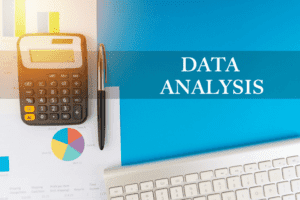
If you’ve never handled finances for a business before, you might be wondering, what’s the difference between bookkeeping and accounting? While some may include a longer list of features, they can all help you manage your business finances the right way. Read the reviews, download a few demos to test drive the options, and find the one that’s right for you. You’ll have to pay only if you use their online payment service, Wave Payments, which charges 2.9% + $.30 per transaction. In addition, ZipBooks includes an auto-billing option, a great feature if you bill customers the same amount each month, with an option to create automatic payment reminders. In addition, you can create custom quotes and later convert those quotes to invoices when approved.
- On the flip side, if connecting your software to your bank makes you uneasy, look for an application that makes it easy to record your transactions manually.
- There are four different Freshbooks plans to choose, and businesses can get a 10% discount if they choose to pay yearly rather than monthly.
- Mazars is an international audit, tax, accounting, and bookkeeping outsourcing and advisory firm.
- The software offers built-in online connections that support some remote work since it integrates with Microsoft 365 Business.
- Easily track business expenses, so you always know where your money is going.
It offers two distinct operational modes—”Do-It-For-Me” and “I-Do-It-Myself”—allowing businesses to choose the level of control they wish to exert. This adaptability ensures businesses can navigate growth phases while maintaining financial oversight. Notably, OneUp is replete with features such as dashboards, invoicing, CRM and more, offering businesses an expansive toolkit to navigate their financial landscape. The platform’s commitment to consistency across devices ensures that as businesses grow, their accounting access remains unhindered, whether they’re at the office desk or on the move.
Sage Business Cloud Accounting: Tracks due dates for renewals
For regular clients, you can set up future invoices, monthly auto-bills and reminders for outstanding invoices. ZipBooks accepts payments from all major credit cards in 22 countries, as well as Square and PayPal. Additionally, ZipBooks will automatically send customers a receipt when they pay your business. You can also manually add transactions if necessary using the import tool.

Good bookkeeping storage and management can also help you save time finding financial information (like whether you paid last month’s electricity bill). The IRS requires you to keep different records for certain periods of time, too. And proper bookkeeping records are part of keeping your company legally compliant across the board. Once you’ve chosen your bookkeeping method, you’ll set up your general ledger. While you can use an actual book to do this if you want to be old school (or drive yourself crazy), most businesses either use a simple spreadsheet or bookkeeping software. Every transaction you make has to be entered into this ledger, and bookkeeping software can help you do this automatically, saving you time and headaches.
Bookkeeping Services vs. Accounting Services: What’s the Difference?
Alison offers both introductory courses and more advanced topics, so you can choose your preferred course based on your experience level. Finance and accounting students may also benefit from Alison’s introductory courses. Take a look at my recommendation for the 5 best books for accounting firms looking to modernize and stay ahead of the curve. If your bookkeeping workload varies greatly from month to month, https://www.bookstime.com/ outsourcing can provide flexibility by allowing you to pay for services as needed. Upwork is a freelancing marketplace where you can locate and hire freelancers, such as bookkeepers, to help you manage your company’s accounts payable and accounts receivable processes. After a brief consultation call, Paro will match-make your financial services needs to an expert from their accounting services platform.
For these reasons, it’s an Editors’ Choice winner and is one of the first accounting options a small business should consider. It’s intuitive enough for novice bookkeepers to learn but supports all the elements that a larger business bookkeeping solutions would need, including payroll. If you are a small business owner, you know the last three years have been brutal. You survived the worst of the COVID-19 pandemic only to be slammed with crippling supply chain issues.
Which Should your Business Choose?
Check off transactions as you categorize and review them to keep track of your reconciliations. Once you’re ready, you can also add your accountant as a user and manage their permissions to make tax season easy. It includes everything in the Starter plan, plus the ability to organize your books by smart tagging and create customized categories for a chart of accounts. You can also invite unlimited users, share documents securely and generate insightful reports. You can choose hourly fees ($125/hour), monthly pricing starting at $349/month (normally $399/month) or weekly starting at $499/month (normally $549/month). All these plans are for businesses with up to $20,000 in expenses using the cash accounting method.
All your data is in one place so you’ll always have access to the latest data even with multiple collaborators like your bookkeeper or your accountant. There are apps that integrate with it, you can log in on your phone, [and] the data is easily accessible to both the client and the accounting team. This may influence which products we review and write about (and where those products appear on the site), but it in no way affects our recommendations or advice, which are grounded in thousands of hours of research. Our partners cannot pay us to guarantee favorable reviews of their products or services. QuickBooks Online has some of the best reporting and bookkeeping features money can buy. Xero, Sage Business Accounting, and Zoho Books have stellar reports at a lower starting price than QuickBooks.